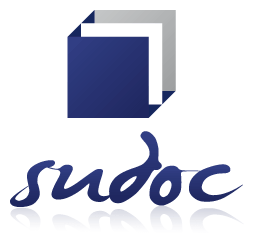Assessment Of Effective Factors In E-Learning at Islamic Azad University
DOI:
https://doi.org/10.63053/ijset.41Keywords:
E-learning, Quality Assessment Model, Structural Equation Modeling, Linear RegressionAbstract
The rapid growth of information and communication technology has brought significant changes to the performance of education globally through the use of learning management systems facilitated by e-learning in higher education institutions. Despite perceived advantages such as flexible and widespread access, e-learning still faces challenges like identifying the needs of students, faculty, and staff, as well as delivering quality courses. Furthermore, there is a lack of assessment of existing e-learning initiatives and the determination of critical success factors for quality. This necessitates further research into e-learning practices to fill the identified gaps. This study presents a model for assessing the quality of e-learning systems by modifying and expanding existing frameworks for quality learning with other models and frameworks. A descriptive and exploratory research approach was employed using a cross-sectional survey of 180 respondents from Islamic Azad University, Science and Research Branch. Data were collected through questionnaires and interviews using stratified sampling methods. The validity of the conceptual model was assessed using structural equation modeling and regression analysis. This study revealed that course design, content support, administrative support, user characteristics, organizational factors, and social support impact quality. This research has contributed to the body of knowledge from theoretical, methodological, and practical perspectives.
References
10- Chawinga, Winner Dominic, and Paxton Andrew Zozie. (2020). "Increasing access to higher education through open and distance learning: Empirical findings from Mzuzu University, Malawi." International Review of Research in Open and Distributed Learning 17, no. 4, 1-20.
11- Lim, Keol, Minseok Kang, and Sung Youl Park. (2021). "Structural relationships of environments, individuals, and learning outcomes in Korean online university settings." International Review of Research in Open and Distributed Learning 17, no. 4, 315-330.
6- Hadullo. K., Oboko, R. & Omwenga, E. (2021). Model for evaluating e-learning systems quality in higher education in developing countries, International Journal of Education and Development using Information and Communication Technology, vol, 13, no. 2, 185-204.
7- Tomczyk, L. Potyrała, K., Włoch, A., Wn˛ek-Gozdek, J. & Demeshkant, N. (2022). Evaluation of the Functionality of a New E-Learning Platform vs. Previous Experiences in E-Learning and the Self-Assessment of Own Digital Literacy, Sustainability,12, doi:10.3390/su122310219.
8- Valverde-Berrocoso, J., del Carmen Garrido-Arroyo, M., Burgos-Videla, S., & Belén Morales-Cevallos, M. (2020). Trends in Educational Research about e-Learning: A Systematic Literature Review (2009–2018), Sustainability, doi:10.3390/su12125153.
Al-Azawei, Ahmed, Patrick Parslow, and Karsten Lundqvist. (2021). "Barriers and opportunities of e-learning implementation in Iraq: A case of public universities." The International Review of Research in Open and Distributed Learning 17, no. 5.
Dargahi, Hossein, Ghazi Saeedi, Marjan and Ghasemi, Maghsoud, 2022, Barrasi Tatbighi Amuzeshi Elektroniki Dar Reshtehaye Oloum Pezeshki Dar Keshvarhaye Montakhab, Majaleh Daneshkadeh Piyapezeshki Daneshgah Oloum Pezeshki Tehran (Piyavard Salamat), 4(3), 69-55.
Esmaili, H, Rahmani, Shahpour, Kazemi, Ahmad and Ali Ahmadi, 2021, Arzyabi Saziyat Yadgiri Elektronik Vahed Amuzesh Majazi Daneshgah Sistan va Baluchestan, Pezhoheshha-ye Modiriyat-e Omumi, 9(34), 222-202.
Ghanbari, Salar, Razaghi Shirsavar, Hadi, Ziaei, Mohammad Sadegh and Masleh, Maryam, 1400, Araye Model Arzyabi Amuzeshe Elektroniki Dar Vahid Elektroniki Daneshgah Azad Islami, Faslnama-ye Ilmi - Pazhooheshi Tahqiqat Modiriyat Amuzeshi, 11(1), 26-1.
Maleki Marasht, Manzar, Gholaei, Alireza and Mousavi, Seyed Amin, 2020, Barrasi Mizane Amadegi Daneshjuyan Daneshgah Orumieh Baraye Sherkat Dar Nazm Yadgiri Elektroniki, Faslnama-ye Danesh Shenasi (Oloum Ketabdari va Etela’ Rasani va Fanavari Etelaat), 5(18), 141-122.
Shahmohammadi, Anvar, Azizi, Nematollah, Taqipour Zahir, Ali and Ebrahimizadeh, Eisa, 2019, Tarahi va E’tebar Yabi Model Arzyabi Dar Nazm Amuzesh Az Door (Mored: Daneshgah Payam Noor), Faslnama-ye Ilmi Pazhooheshi Amuzeshe Ali Iran, 11(1), 27-1.
Downloads
Published
How to Cite
Issue
Section
License
Copyright (c) 2024 Authors

This work is licensed under a Creative Commons Attribution 4.0 International License.












